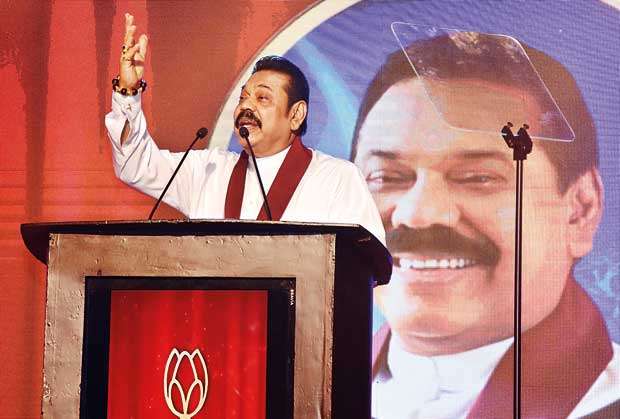Reply To:
Name - Reply Comment

 Back in 2015 when Syriza won more than 70 seats in the Greek Parliament and with it the mandate to govern (with its leader Alexis Tsipras as the president), socialists the world over celebrated the coming of the Global Left. But as Stathis Kouvelakis notes in “Syriza’s Rise and Fall” (in the New Left Review), Syriza erred by moving from a militant party of the left (“with a strong culture of internal debate, heterogeneity, involvement in social movements and mobilizations”) to a party containing a passive membership and a more active and aggressive leadership.
Back in 2015 when Syriza won more than 70 seats in the Greek Parliament and with it the mandate to govern (with its leader Alexis Tsipras as the president), socialists the world over celebrated the coming of the Global Left. But as Stathis Kouvelakis notes in “Syriza’s Rise and Fall” (in the New Left Review), Syriza erred by moving from a militant party of the left (“with a strong culture of internal debate, heterogeneity, involvement in social movements and mobilizations”) to a party containing a passive membership and a more active and aggressive leadership.

The result was a mess of a vanguard party system, with the membership playing a pathetic second fiddle to the leadership. The consequences of this were seen soon enough, with no less a figure than Tsipras kowtowing to popular pressure from the European Union and caving into its demands. So much for the Fringe Left.
Gomin Dayasiri, at the launch of Manohara de Silva’s “Bedumwaadin ge upayamarga saha vivastha sanshodana” held at the Sri Lanka Foundation Institute, began his speech by comparing the movement for a more nationalist political party (back then the concept of a third party was only palely being tossed here and there) to the rise of rightwing movements throughout the West: Donald Trump, Nigel Farage, Boris Johnson, Marine Le Pen. Implicit in his contention was that if the West was seeing a return to “traditional values” (which was what the rightwing fringe leaders were harping about), there was nothing wrong in aiming at a restoration of the old order in Sri Lanka. Dayasiri made this speech more than a year ago, well before Le Pen and Farage went down and Trump’s popularity began to wane.
My point is this: if we conflate the fringe movements of the West with the rise and empowerment of what is now the Pohottuwa, we’re as mistaken as those pundits who contend that the Rajapaksas should be ignored and cast aside. Where is Trump now? Where is Le Pen? Where is Farage and where is Johnson? More importantly, what was it that led them to clinch power and then quickly lose it?
The rise of the extreme right (and even left) in Europe and the United States was the consequence of a cosmopolitan and lotus-eating world order that eschewed national concerns for a mad rush and drive towards globalisation. Centuries ago, Diogenes, the madman who slept in a bathtub on the roads of Greece, proclaimed that he was a citizen of the world. From mercantilism to free trade and to complete globalisation, the madman eventually became a prophet.
"The shift from fringe to centre is a hard shift to make, but if the Pohottuwa is to make a proper, cohesive, comprehensive comeback, it must let go of both those myths: globalism and rabid anti-globalism."
But this prophet, though a darling of world leaders and CEOs of global companies (or, as the Avocado Collective so aptly puts it, “sellers of overpriced industrial goods”), wasn’t taken kindly to by the people, many of whom vented out their fury and feelings of inadequacy by voting for people who not only rebelled against the “liberalism” of their opponents, but also against the rabid conservatism of their own party. The late John McCain is reported to have criticised Trump for straying away from the old and dear principles of bipartisan compromise which made up American Conservatism. It is this rift, between what is perceived to be “good sense” in mainstream politics and the populist thrust of the fringe movements, which brought to power, and then displaced, the likes of Trump and Le Pen. They were the inevitable consequence of an electorate that was getting tired of globalisation and multinational finance.
The Pohottuwa is not the product of this global trend (which is now waning). It is the product of discontent on the cultural plane. Not the economic plane. And the reason for that is simple enough: in Sri Lanka, the economic has almost always been taken over by the cultural.
The truth is that the leaders of this government are seen to be flirting with political movements which were displaced by Trump, Farage, and Le Pen, among others: the Democrats in the United States and the Conservatives and Liberal Democrats in Britain. Those images of our finance and foreign ministers shaking hands of the likes of Nisha Biswal soon turned sour, and the racist epithets which supporters of the present administration hurled against China soon soured, and (a) we had to go back to China, and ( b) America began undergoing a radial trans-valuation of its economic and cultural landscape after Trump’s election.
Still, it is hard to resist the urge to compare the Rajapaksas and their imminent return to power, whether at the fringe or the centre, with what’s happening out there in the West. And yet, the imperatives governing both these political trends are different and vastly so. Mahinda Rajapaksa is not Donald Trump and Gotabaya Rajapaksa, despite what commentators like Tisaranee Gunasekara might suggest, is not Adolf Hitler. Added to this is another reason, more subtle and consequently easier to miss.
Political writers and columnists, particularly in the English press, are not a little obsessed with seeing a political context through the lens of Western history. Why else are the Rajapaksas being compared to Caligula and Hitler and, by implicit suggestion, the president and prime minister being compared to Obama and self-righteous liberal world leaders? The problem here, however, is that it is not just the supporters of the present administration who are making such grandiloquent claims by comparing the one with the other; it is also the supporters of the Pohottuwa, who have seen the rise of Trump and other extreme right movements in the West as a sign of the second coming of the Rajapaksas. Unfortunately for them, tragically, all they see is the rise of those movements, and not their subsequent fall.
If the Pohottuwa, or the Podu Jana Peramuna, is to forge ahead, it will therefore have to change its propaganda substantially. I am not suggesting that, as per Dr Dayan Jayatilleka’s suggestion, it moves on and embraces his version of internationalism (“Smart Patriotism”). In a country with a numerical and ethnic majority that is clearly opposed to such internationalism, not even Fidel Castro’s anti-Americanism can spur the people and their leaders to affirm globalism from a leftist standpoint. This is not my opinion; whatever my feelings on the matter, the truth is that the people are tired of globalists, whether from the left or right, and that they want a strong leader to make up for the weak government we have at present. You can argue that it is racist, anti-feminist, and anti-everything that liberals hold dear. Whatever argument you make, however, the truth will remain: the people are tired, of concepts and promises.
But then the people are making a mistake. Having repudiated globalism, they eagerly seize on the (perceived) rise of the Global Right as a sign of their return. This is a dangerous myth to indulge in, not least because fringe movements are exactly that: fringe, and therefore doomed perpetually to be in the sidelines. The shift from fringe to centre is a hard shift to make, but if the Pohottuwa is to make a proper, cohesive, comprehensive comeback, it must let go of both those myths: globalism and rabid anti-globalism. The reason is easy enough to guess: we are not the West. We are Sri Lanka. And in “being” Sri Lanka, we have our own economic, social, and cultural imperatives that defines what the political moment is, or at least should be. The more the Pohottuwa subscribes to this fallacious worldview, the more doomed it will be to remain as a fringe party.